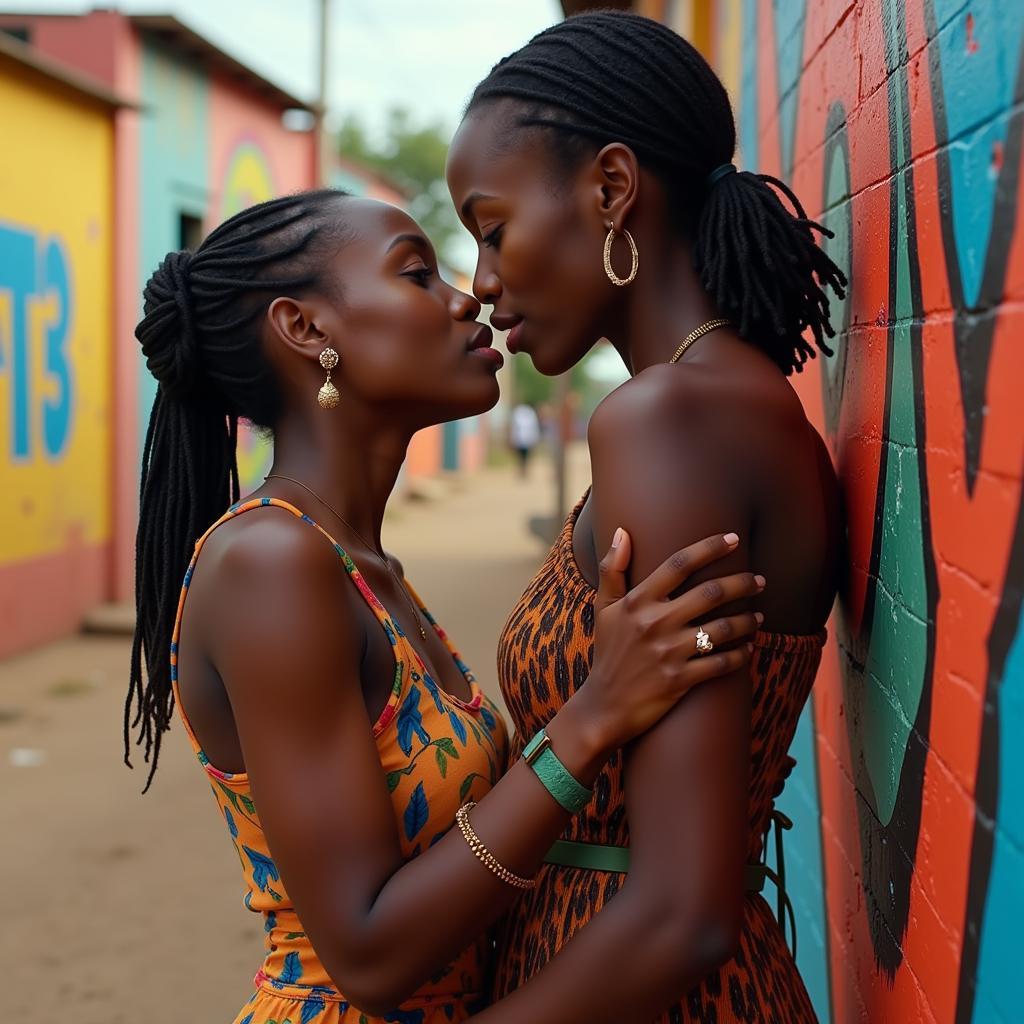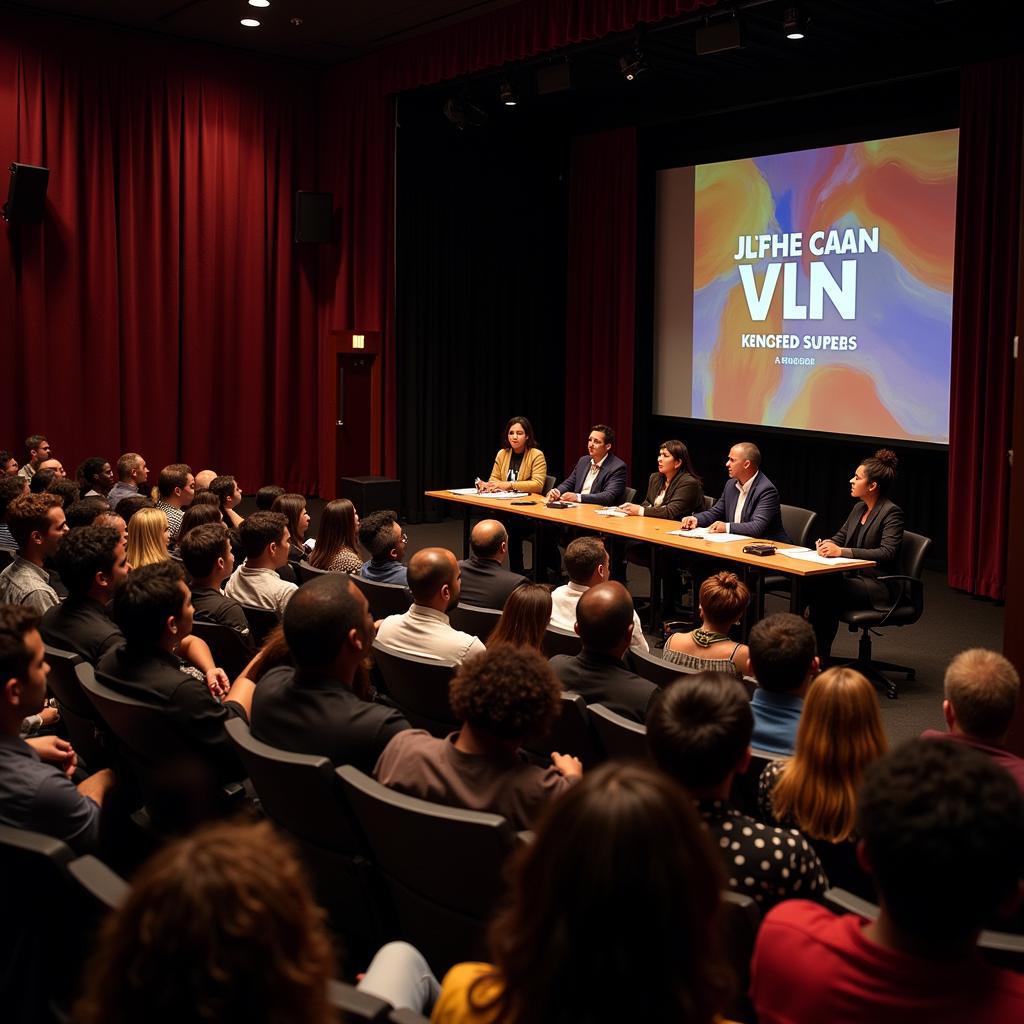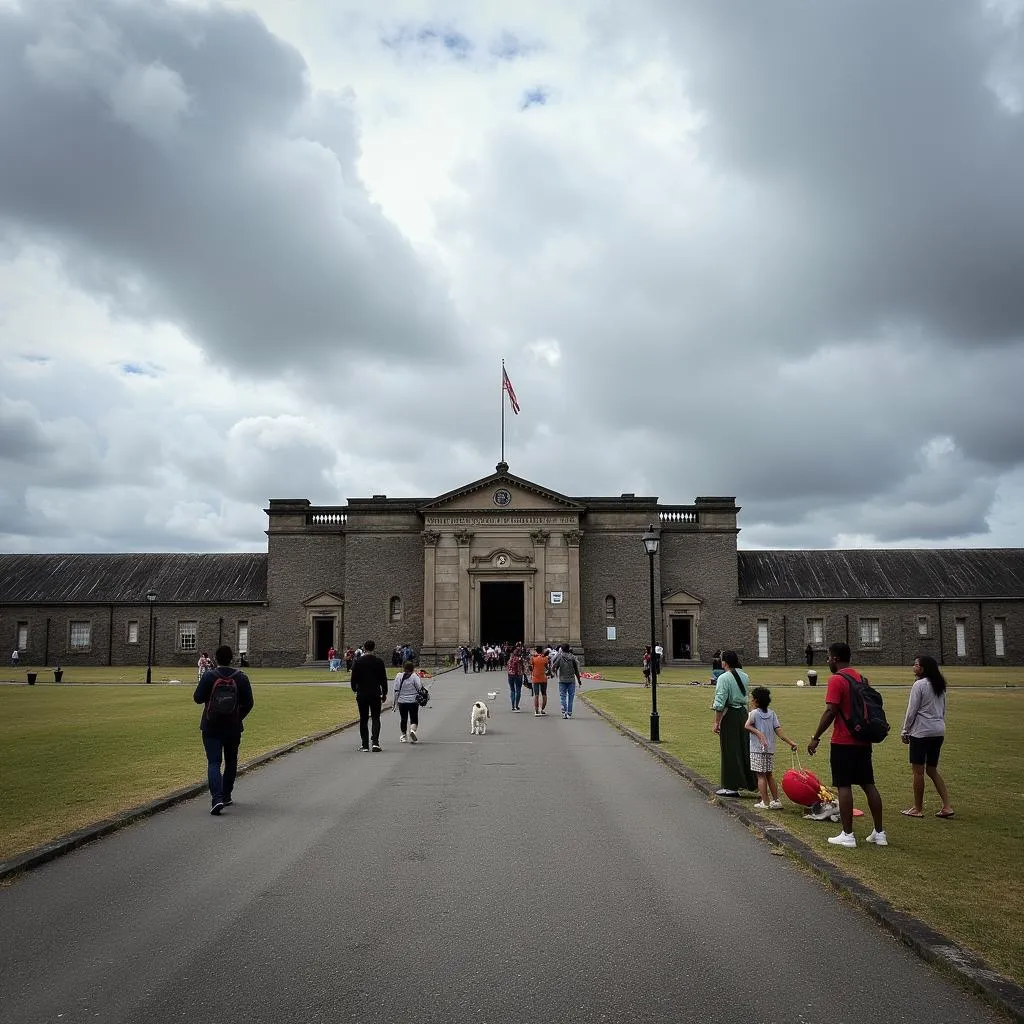African Cinema and Human Rights: A Powerful Lens on Societal Issues
African cinema, with its rich tapestry of stories, provides a powerful platform for exploring the complexities of human rights on the continent. From historical injustices to contemporary struggles, filmmakers have used the medium to shed light on issues often silenced or ignored. This exploration of human rights through film serves not only to entertain but also to educate, provoke dialogue, and inspire change.
A History of Resistance: Cinema as a Tool for Liberation
The history of African cinema is deeply intertwined with the fight for liberation. During the post-colonial era, filmmakers emerged as key voices in challenging colonial narratives and giving voice to the newly independent nations. Seminal works like Ousmane Sembène’s “Black Girl” (1966) and Med Hondo’s “Soleil O” (1970) exposed the brutal realities of colonialism and its enduring impact on African societies. These films became catalysts for social change, sparking conversations about racism, identity, and self-determination.
Giving Voice to the Marginalized: Exploring Contemporary Human Rights Issues
Contemporary African cinema continues to grapple with pressing human rights concerns. Filmmakers are increasingly turning their lenses on issues such as gender inequality, political corruption, ethnic conflicts, and poverty. Movies like Wanuri Kahiu’s “Rafiki” (2018), a Kenyan film portraying a lesbian love story, challenge societal norms and advocate for LGBTQ+ rights. Similarly, “The Burial of Kojo” (2018), a Ghanaian film by Blitz Bazawule, delves into the impact of corruption and environmental degradation on local communities.
 Contemporary African Cinema and Human Rights: A scene from "Rafiki" by Wanuri Kahiu
Contemporary African Cinema and Human Rights: A scene from "Rafiki" by Wanuri Kahiu
The Power of Storytelling: Amplifying Voices, Igniting Change
African cinema’s strength lies in its ability to tell human stories that resonate with audiences across geographical boundaries. By putting a human face on complex issues, filmmakers can evoke empathy, understanding, and ultimately, action.
“African cinema acts as a mirror reflecting our realities, our struggles, and our aspirations,” says renowned Senegalese filmmaker, Moussa Sene Absa. “Through film, we can break down stereotypes, challenge prejudice, and inspire a more just and equitable world.”
 African Film Festival: Attendees engaging with filmmakers
African Film Festival: Attendees engaging with filmmakers
Conclusion
African cinema, with its unwavering commitment to social justice, continues to play a vital role in amplifying the voices of the marginalized and advocating for human rights. By engaging with these films, audiences can gain a deeper understanding of the challenges and triumphs faced by communities across the continent. Through the power of storytelling, African cinema has the potential to inspire meaningful change and contribute to a more just and equitable world.
FAQs
1. What are some of the major themes explored in African cinema related to human rights?
African cinema tackles a wide range of human rights issues, including colonialism and its legacies, gender inequality, political corruption, ethnic conflicts, LGBTQ+ rights, and access to education and healthcare.
2. Who are some of the pioneering filmmakers in African cinema known for their contributions to human rights discourse?
Some of the influential figures include Ousmane Sembène, Med Hondo, Souleymane Cissé, Djibril Diop Mambéty, Sarah Maldoror, and Fanta Régina Nacro.
3. What are some notable film festivals that showcase African cinema and its engagement with human rights?
Prominent film festivals include FESPACO (Panafrican Film and Television Festival of Ouagadougou), Durban International Film Festival, and the Toronto International Film Festival (TIFF), which often features a dedicated section for African cinema.
4. How has the digital revolution impacted the reach and accessibility of African cinema focusing on human rights?
Streaming platforms and online distribution channels have significantly broadened the reach of African cinema, allowing filmmakers to bypass traditional gatekeepers and connect directly with global audiences. This increased accessibility has fostered greater awareness and engagement with human rights issues depicted in these films.
5. What is the role of film criticism and scholarship in promoting and understanding African cinema’s engagement with human rights?
Film critics and scholars play a crucial role in contextualizing, analyzing, and interpreting African cinema within a broader social, political, and cultural framework. Their work helps to deepen understanding of the films’ messages, themes, and artistic merit, contributing to a richer appreciation of their significance in addressing human rights concerns.
For further exploration of African cinema, check out our articles on african gay flims and african drama output. You can also find insights into related topics such as african american movie sexy and african american porn videos. To discover more about films set in Africa, explore our collection of african based english movies.
Need support? Contact us at +255768904061, kaka.mag@gmail.com, or visit us at Mbarali DC Mawindi, Kangaga, Tanzania. Our customer service team is available 24/7.


